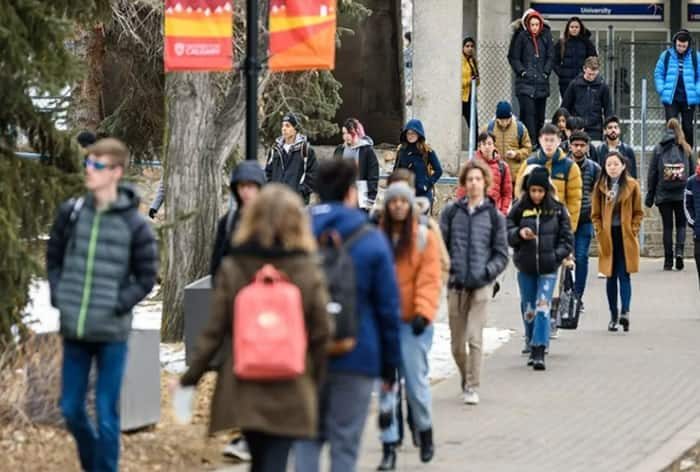
[ad_1]
The cap will only apply to students at a diploma or undergraduate programme, and will not affect students applying for study permit renewals.

Canada has announced a new policy to cap international student admissions for the next two years in an attempt to address pressure on housing and healthcare in the country. This decision comes as a response to the growing concerns regarding the impact of international students on the country’s education system and job market. Immigration Minister Marc Miller announced the cap on Monday, saying that Canada aims to approve around 360,000 undergraduate study permits this year.
The cap will result in a decrease of 35% in approved study permits. Over 800,000 foreign students were in Canada in 2022, up from 214,000 a decade earlier. The new measures are also meant to ensure the “integrity” of the system, officials said.
The new policy aims to address the increasing number of international students enrolling in Canadian universities and colleges. It is estimated that there has been a significant rise in the number of international students in recent years, leading to a strain on resources and infrastructure.
“These measures are to ensure that as future students arrive in Canada, they receive the quality of education that they signed up for and the hope that they were provided in their home countries. It would be a disservice to welcome international students to Canada knowing that now all of them are getting the resources they need to succeed in Canada. Allowing bad actors to continue their operations would be a disservice to all of the good institutions who pride themselves on providing a top-tier academic experience,” Miller said,
How will it impact Indian students?
This decision of the Canadian federal government will have a big impact on Indian students. Notably, Indians constitute the largest group of international students in Canada, receiving over 41 per cent of permits in 2022. According to current estimates, more than 3,00,000 Indian students went to Canada in 2023, as reported by CBC News.
Miller’s announcement also comes amid Canada’s ongoing housing crisis. “Right now we have a challenge with the sheer volume” of students coming in, Reuters quoted Miller as saying. “It’s just gotten out of control and needs to be reduced – I would say – significantly over a short period of time.”
In Canada, now provinces and territories will be allocated a portion of the total permits, distributed by population, leading to “much more significant decreases in provinces where the international student population has seen the most unsustainable growth.”
The cap will only apply to students at a diploma or undergraduate programme, and will not affect students applying for study permit renewals.
As part of the change, the government will also no longer – as of September – grant work permits for students graduating from colleges that operate under a public-private partnership model, which is most commonly found in the province of Ontario.
“It’s unacceptable that some private institutions have taken advantage of international students by operating under-resourced campuses, lacking supports for students and charging high tuition fees, all while significantly increasing their intake of international students,” Mr Miller said.
He said the new measures are “not against individual international students” but are meant to ensure future students receive a “quality of education that they signed up for”.
The announcement comes after months of pressure on Prime Minister Justin Trudeau’s government to take stronger action against colleges that are believed to be exploiting foreign students, who are charged an average of five times as much as Canadians.
[ad_2]